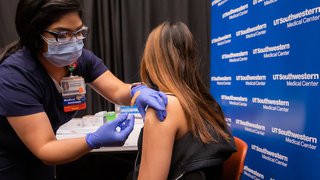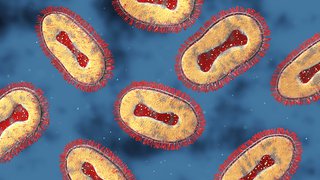Is it safe for pregnant moms to take a road trip during COVID-19?
July 7, 2020

'I can't wait to get out of town for a few days this summer." Several pregnant patients have echoed this sentiment, lamenting canceled flights and vacations due to the pandemic.
But instead of staying home, many are opting for a classic American road trip.
A June 2020 survey suggests U.S. travelers are nearly twice as likely to take a road trip this summer than fly. While the Centers for Disease Control and Prevention (CDC) still recommends staying home, driving is the safer travel option when wanderlust calls.
Any road trip requires preparation, especially during pregnancy. This year, take extra precautions to protect your health, your baby bump, and your family while hitting the open road.
1. Find the second trimester sweet spot
The second trimester is an ideal travel time for many pregnant patients. Morning sickness has most likely passed and third trimester discomforts, such as frequent urination and heartburn, haven't set in yet.
Avoid traveling during the last trimester if you have a history of preterm labor or have experienced contractions or bleeding during pregnancy. It's safer to be near your regular provider if you go into labor early or have a complication.
Related reading: 7 tips for planning a relaxing, healthy babymoon
2. Check the COVID-19 map
The CDC updates a U.S. COVID-19 map that indicates "hot spots," or areas with high rates of infection. Check whether COVID-19 is spreading rapidly where you plan to go, as well as the rate of infection in your own community to avoid spreading the virus at your destination.
Also, the CDC recommends checking with state or local health departments for travel restrictions and reopening information. Look for details along your route and at your destination.
COVID-19 symptoms can show up as late as two weeks after exposure. If you travel to a high-risk area, or if you might have been exposed during your travels, plan to self-quarantine for 14 days when you get home.
3. Pack for the pandemic
Because of COVID-19, you'll want to pack antibacterial wipes and hand sanitizer to use whenever you stop. Anytime you travel during pregnancy, bring your insurance card and a copy of your prenatal records with your provider's contact information in case the unexpected happens. You'll also want to pack these safety items if you plan to enjoy the great outdoors:
- Sunscreen with an SPF of at least 30% and UVA and UVB protection.
- Insect repellant. DEET is one of the most effective mosquito repellants. Using it as directed on your skin will not harm you or your baby during pregnancy.
- Prescriptions and over-the-counter medications for allergies, pain relief, or chronic conditions.
Pregnancy and COVID-19: What You Need to Know
4. Protect your legs (and baby bump)
You might be tempted to drive straight through to your destination. However, pregnant women are at increased risk for blood clots – sitting for long periods of time increases that risk.
Make each day’s drive as short as you can and stop every few hours to stretch your legs. Stretching will help reduce swelling and minimize the risk of clots forming. Wearing support stockings also can help improve blood flow through your legs.
Seat belts are a must. They do NOT pose a risk for pregnant women. Secure your seat belt with the lap belt below your belly and position the shoulder strap between your breasts and off to the side of your belly.
5. Safety first during food, gas, and bathroom breaks
Whenever you stop, wear a mask to protect yourself and others – even if people around you don't comply – and avoid touching your face. Steer clear of high-touch areas as much as possible, such as door handles and railings. Wash your hands and use hand sanitizer regularly.
Fast-food lines were long on my last trip, and you may find that restaurants are limiting food options in order to reduce employees’ handling of items. Eating inside increases your exposure to others, and your risk – choose takeout or dine on the outdoor patio if possible.
Better yet, bring a cooler stocked with drinks, snacks, and ready-to-eat meals. Avoid deli meat and unpasteurized dairy products, which are unsafe during pregnancy.
Look ahead for rest stops, which frequently have outdoor picnic tables where you can eat, use the restroom and walk in the fresh air. If possible at gas stations, pay at the pump to avoid going inside.
6. Stay safe at hotels
See if the hotel offers mobile check-in so you can skip the lobby. Consider taking the stairs if there are other people in the elevator or wait so you can ride alone.
While most major hotel chains have expanded their cleaning policies in response to the pandemic, it doesn’t hurt to disinfect the room once you arrive. High-touch areas to wipe down include phones, TV remotes, doorknobs, faucets, toilet handle, and flat surfaces. Also, skip the buffet-style breakfast, gym, and spa to avoid unnecessary exposure.
7. Seek medical care if you need it
If you feel ill or have any of the following symptoms during your trip, seek care right away:
- Abdominal pain or cramps
- Leg swelling or pain
- Vaginal bleeding
- Contractions
- Severe headaches
- Vision problems
- Your water breaks
Also, try to avoid preventable injuries by listening to your body. You might not be able to hike as far as you could before pregnancy, especially if you've traveled to a hotter or more elevated climate.
Many outdoor activities are safe for pregnant women, but it’s best to opt out of excursions with a high falling risk, such as skiing or horseback riding. If you’re vacationing near the water, snorkeling is safer than scuba diving, which can create unhealthy pressure on your body.
We all could use a change of scenery these days. But it’s important to be cautious, especially during pregnancy. If you’re uncertain about your vacation plans, talk to your Ob/Gyn to determine if traveling is safe for you and your baby.
To visit with an Ob/Gyn or midwife, call 214-645-8300 or request an appointment online.
















